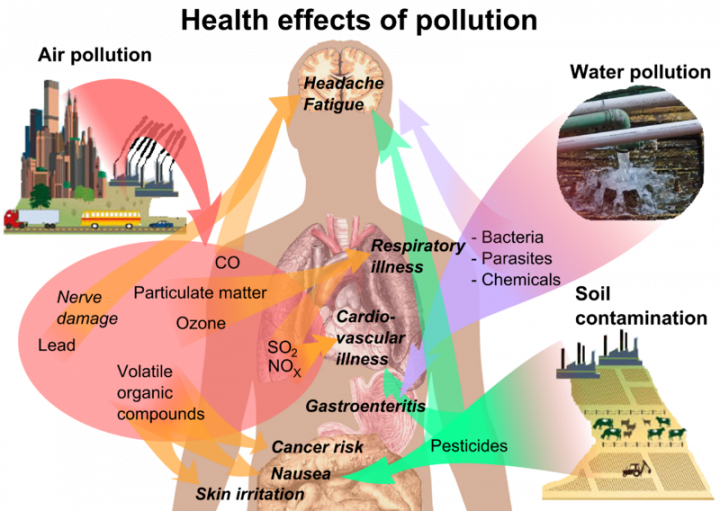New Lancet Commission spotlights “profound and pervasive threat that affects many aspects of human health and wellbeing.”
by Andrea Germanos, staff writer for Common Dreams
Pollution, “one of the great existential challenges of the Anthropocene epoch,” kills 9 million people per year. That’s more than the number of deaths caused by tobacco, three times as many deaths caused by AIDS, tuberculosis, and malaria combined, and 15 times as many deaths caused by war and other violence.
The data comes from a new global study on pollution and health published in The Lancet, which calls for a mobilization of both resources and political will to tackle the worldwide and costly menace.
“Pollution is much more than an environmental challenge—it is a profound and pervasive threat that affects many aspects of human health and wellbeing. It deserves the full attention of international leaders, civil society, health professionals, and people around the world,” says Professor Philip Landrigan of the Icahn School of Medicine at Mount Sinai and co-leader of the two-year, international Lancet Commission.
Air pollution, including indoor and outdoor, plays the biggest role in pollution-related deaths (6.5 million deaths in 2015 ), and is linked to heart disease, stroke, lung cancer, and COPD. Polluted water, workplace pollution (such as asbestos exposure), and lead pollution also add to the death toll—which researchers say is likely an underestimate.
Looking at those impacted most reveals global inequality at play.
The bulk of pollution-related deaths (92 percent) strike in low- and middle-income countries. India and China tallied the highest numbers of such deaths, with 2.5 million and 1.8 million respectively. In addition, the researchers note, across the board, the deaths are most prevalent among minorities and the marginalized.
Pollution is an extremely costly problem, even without environmental damage costs taken into account. Looking at welfare costs alone, the total in 2015 topped US$4.6 trillion, or 6.2 percent of world GDP.
The World Health Organization (WHO) applauded the new analysis. “Pollution is a symptom and unintended consequence of unhealthy and unsustainable development,” write Maria Neira, Michaela Pfeiffer, Diarmid Campbell-Lendrum, and Annette Prüss-Ustün of WHO’s Department of Public Health, Environmental, and Social Determinants of Health.
“If we want to substantially reduce the global environmental burden of disease, we need to act further upstream and address the drivers and sources of pollution to ensure that development policies and investments are healthy and sustainable by design and that the choices we make—at the government, private sector, and individual levels—cultivate a healthier and safer environment. In other words, we need to move beyond a ‘do-no-harm’ approach and ensure that development actively and explicitly improves the environmental and social conditions that give rise to, and expose populations to, disease,” they add.
According to Pamela Das, senior executive editor, and Richard Horton, editor-in-chief of The Lancet, the new report should be “a timely call to action.”
“Now is the moment to accelerate our collective response. Current and future generations deserve a pollution-free world,” they write in a comment linked to the report.










